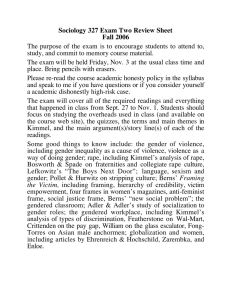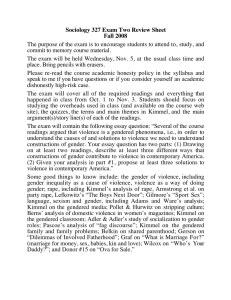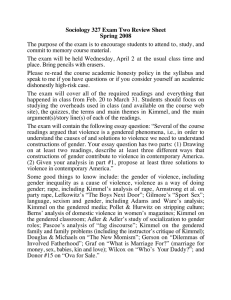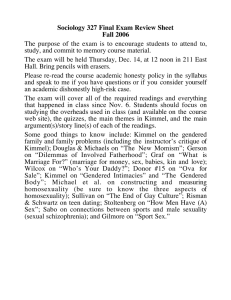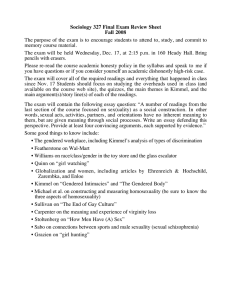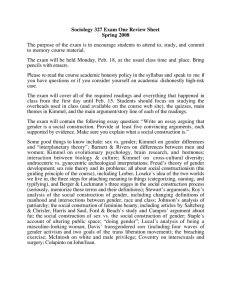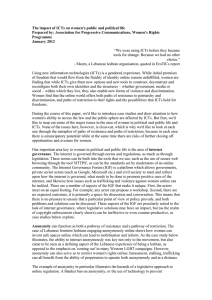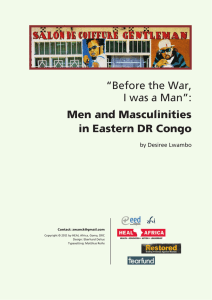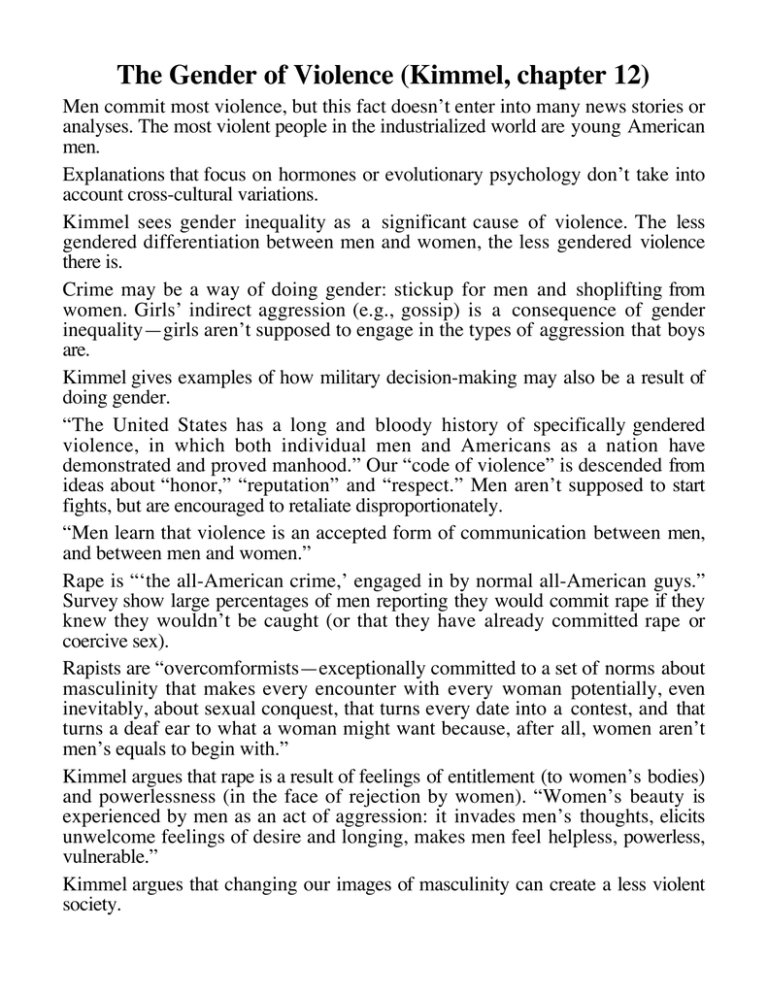
The Gender of Violence (Kimmel, chapter 12)
Men commit most violence, but this fact doesn’t enter into many news stories or
analyses. The most violent people in the industrialized world are young American
men.
Explanations that focus on hormones or evolutionary psychology don’t take into
account cross-cultural variations.
Kimmel sees gender inequality as a significant cause of violence. The less
gendered differentiation between men and women, the less gendered violence
there is.
Crime may be a way of doing gender: stickup for men and shoplifting from
women. Girls’ indirect aggression (e.g., gossip) is a consequence of gender
inequality—girls aren’t supposed to engage in the types of aggression that boys
are.
Kimmel gives examples of how military decision-making may also be a result of
doing gender.
“The United States has a long and bloody history of specifically gendered
violence, in which both individual men and Americans as a nation have
demonstrated and proved manhood.” Our “code of violence” is descended from
ideas about “honor,” “reputation” and “respect.” Men aren’t supposed to start
fights, but are encouraged to retaliate disproportionately.
“Men learn that violence is an accepted form of communication between men,
and between men and women.”
Rape is “‘the all-American crime,’ engaged in by normal all-American guys.”
Survey show large percentages of men reporting they would commit rape if they
knew they wouldn’t be caught (or that they have already committed rape or
coercive sex).
Rapists are “overcomformists—exceptionally committed to a set of norms about
masculinity that makes every encounter with every woman potentially, even
inevitably, about sexual conquest, that turns every date into a contest, and that
turns a deaf ear to what a woman might want because, after all, women aren’t
men’s equals to begin with.”
Kimmel argues that rape is a result of feelings of entitlement (to women’s bodies)
and powerlessness (in the face of rejection by women). “Women’s beauty is
experienced by men as an act of aggression: it invades men’s thoughts, elicits
unwelcome feelings of desire and longing, makes men feel helpless, powerless,
vulnerable.”
Kimmel argues that changing our images of masculinity can create a less violent
society.

